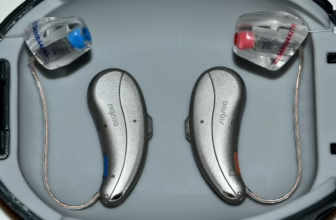Around 20 million men in America suffer from not having enough testosterone. Because many are now taking this treatment, it’s essential to store and manage the medicine correctly so it works well and is safe. While this medication differs from the traditional pills, you might be asking yourself, does testosterone need to be refrigerated?
Understanding Testosterone Replacement Therapy
Doctors often give testosterone replacement therapy to men who show signs of not having enough testosterone, like having less sexual desire, feeling very tired, or their muscles getting smaller. This treatment includes giving testosterone in different ways, such as shots, sticky patches on the skin, creams, and small capsules put under the skin.
Importance of Proper Storage
It is essential to store testosterone drugs the right way so they keep their strength and work well. If you do not store testosterone properly, the medicine can break down, making it weaker or maybe even dangerous.
Testosterone does not like temperature changes too much, and if it gets hot or cold, its tiny parts can get damaged. Keeping it cool in a fridge helps keep the temperature the same so the medicine stays good.
Keep testosterone in a cool, dark area to reduce light contact, which might lessen its strength.
To stop things from making the medication dirty, it must be kept in a place that is clean and where there is no moisture.
Refrigeration: Necessary or Optional?
Many people who get TRT ask if they must keep testosterone in a fridge. For some kinds, like the gel, it is good to refrigerate, but for other types, this might not be needed.
Testosterone Gel
The testosterone creams, like AndroGel and Testim, need to be kept in a cool place so they stay stable and work well.
When you put testosterone gel in the fridge, it might feel more pleasant to use because it becomes cold.
It’s imperative to stick to the instructions given by the manufacturer about how to store and use it so you get the best performance.
Injectable Testosterone
Injectable testosterone, like the types called testosterone cypionate and enanthate, should usually be kept at average room temperature.
These formulations remain stable at average room temperature for a long time, so there is no need to keep them cold.
Storing medicine at room temperature is more convenient for patients because they don’t have to keep it in a fridge, making the medication more accessible.
Other Forms of Testosterone
Testosterone patches might need to be kept at room temperature, but check the particular product guidance for advice.
Testosterone pellets are placed under the skin by a doctor or nurse, and you don’t need to keep them cold before the procedure.
Best Practices for Testosterone Storage
No matter which type of testosterone is given, specific suitable methods for keeping it should be followed to make sure it works the best and is safe.
Always adhere to the storage directions given by the maker for the particular testosterone medicine that has been prescribed.
Keep the temperature steady and store testosterone in a cool place and without light to avoid it getting worse.
Keep testosterone medications away from very hot or very cold temperatures.
Make sure to often look at the expiration dates on your testosterone medicines and throw away any that are no longer good by following the right way to get rid of them.
Final Thoughts
It is essential to store testosterone medicines correctly to keep them strong and working well. Some kinds, like testosterone gel, might need to be kept in the fridge, but this isn’t always true for injections.
Patients who receive TRT must pay close attention to how they store their medicine, as instructed by the health professional and the company that makes it. Following these guidelines for keeping testosterone properly helps them get the most advantage from this therapy while reducing the chances of adverse side effects.
Follow me down the rabbit hole!
I'm Alice and I live with a dizzying assortment of invisible disabilities, including ADHD and fibromyalgia. I write to raise awareness and end the stigma surrounding mental and chronic illnesses of all kinds.








